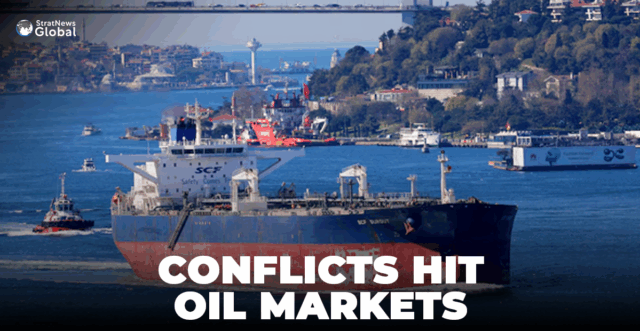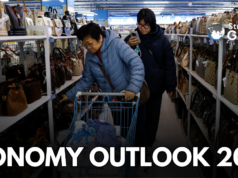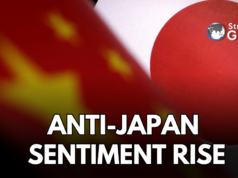Russia, the United States, and Saudi Arabia could potentially work together to stabilise oil markets if necessary, Russian investment envoy Kirill Dmitriev said.
Oil prices surged on Thursday after Israel said it attacked Iranian nuclear sites in Natanz and Arak overnight, and as investors grappled with fears of a broader conflict in the Middle East that could disrupt crude supplies.
Dmitriev, chief of Russia’s sovereign wealth fund, said there was a precedent for similar joint action in 2020.
“There was an example when (Russian) President Putin, (U.S.) President Trump and (Saudi) Crown Prince Mohammed bin Salman played a key role in stabilising markets,” Dmitriev said on the sidelines of the St Petersburg International Economic Forum.
“It is early to talk about concrete joint action yet, but based on an earlier precedent, such action is possible.”
In the spring of 2020, as oil prices plummeted amid the COVID-19 pandemic, Trump brokered a deal with top crude producers Russia and Saudi Arabia to cut output and calm the markets.
“Events in the Middle East create conditions for oil price rises. The dynamics of these events will define how dramatic this rise will be,” Dmitriev said.
“The dynamics of such rises sharply reduce the possibility of further restrictions on Russia’s energy sector,” he said, referring to European Union deliberations on tightening sanctions against Moscow.
Market ‘Largely Worried’
Analysts said the market was largely worried about supply disruptions in the Strait of Hormuz, which carries a fifth of the world’s seaborne oil.
Iran is OPEC’s third-largest producer, extracting about 3.3 million barrels per day (bpd) of crude oil, but spare capacity among producers in the Organisation of the Petroleum Exporting Countries and their allies can readily cover this.
“Material disruption to Iran’s production or export infrastructure would add more upward pressure to prices. However, even in the unlikely event that all Iranian exports are lost, they could be replaced by spare capacity from OPEC+ producers … around 5.7 million barrels a day,” said Fitch analysts in a client note.
Brent crude oil prices have gained about $10 a barrel over the past two weeks, and Fitch analysts said they expect the geopolitical risk premium in oil prices to be contained at around $5 to $10.
(With inputs from Reuters)





